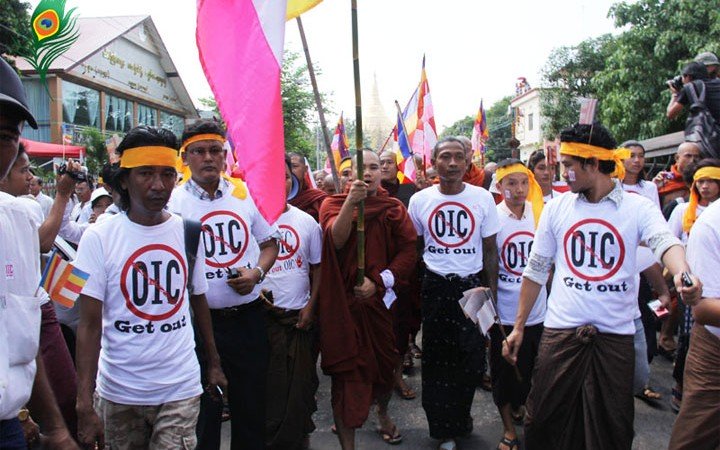Thursday’s announcement that a government contract has been awarded to a Qatar-based telecommunications company has sparked an outcry among Buddhist nationalists around Myanmar.

Shortly after Qatar’s Ooredoo and Norway’s Telenor were declared the winners of a competitive tender bidding process among a short-list of 11 international telecoms giants, a backlash of fury erupted on Myanmar’s social media, much of it on the Facebook accounts of Ye Htut, the presidential spokesman who broke the news, and other government ministers.
Many complained that the contract should not be awarded to a firm based in a Muslim country, and said they would not use the service.
In an interview with the New York Times on Thursday evening, Ashin Wimala—a senior Buddhist monk and one of the leaders of the 969 movement, which is accused of inspiring Buddhist lynch mobs to attack Muslim homes and businesses—called for a boycott of Ooredoo’s proposed services.
The Qatar-based firm has to date made no comment about the threatened boycott, but on it s website on Thursday it said, “Ooredoo will apply all of its global and regional best practice and knowledge in Myanmar to deliver a next generation mobile network and a range of exciting, customer friendly and easy-to-use mobile services.
“Ooredoo’s investment is expected to generate a significant number of jobs and be the catalyst to several hundred thousand indirect jobs in roles such as sales, distribution, customer service and other related activities.”
Set Aung, the chairman of the government panel which oversaw the bidding process, defended the choice of Ooredoo, saying that the fact that the panel refused to consider Buddhist public sentiment “just shows how transparent we are and how unbiased.”
Ooredoo has operations in more than a dozen countries in the Middle East, North Africa and Asia. It is the largest shareholder in Indonesian phone company Indosat, has stakes in Singapore's StarHub, and is the main phone company in Laos.
Ooredoo and Telenor each won a 15-year license to provide mobile services to Myanmar, a country where less than 10 percent of the 60 million population has access to a mobile phone, in stark contrast to neighbors such as Laos, which has 87 percent coverage, and Thailand where there are more cellphones than people.
Ooredoo has committed to spending US$15 billion in Myanmar as part of its bid, according to a senior company executive who spoke on the matter last month. Their plan includes rolling out a 3G data network that will reach 90 percent of the country.



